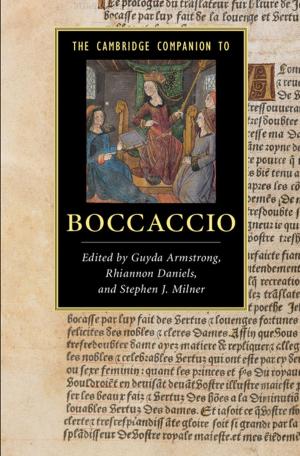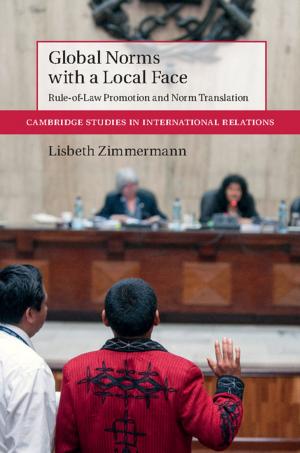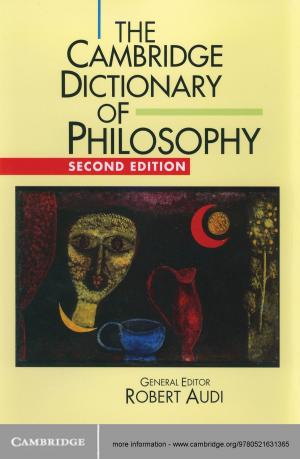Making Religion Safe for Democracy
Transformation from Hobbes to Tocqueville
Nonfiction, Religion & Spirituality, Philosophy, Political| Author: | J. Judd Owen | ISBN: | 9781316189054 |
| Publisher: | Cambridge University Press | Publication: | December 18, 2014 |
| Imprint: | Cambridge University Press | Language: | English |
| Author: | J. Judd Owen |
| ISBN: | 9781316189054 |
| Publisher: | Cambridge University Press |
| Publication: | December 18, 2014 |
| Imprint: | Cambridge University Press |
| Language: | English |
Does the toleration of liberal democratic society mean that religious faiths are left substantively intact, so long as they respect the rights of others? Or do liberal principles presuppose a deeper transformation of religion? Does life in democratic society itself transform religion? In Making Religion Safe for Democracy, J. Judd Owen explores these questions by tracing a neglected strand of Enlightenment political thought that presents a surprisingly unified reinterpretation of Christianity by Thomas Hobbes, John Locke, and Thomas Jefferson. Owen then turns to Alexis de Tocqueville's analysis of the effects of democracy on religion in the early United States. Tocqueville finds a religion transformed by democracy in a way that bears a striking resemblance to what the Enlightenment thinkers sought, while offering a fundamentally different interpretation of what is at stake in that transformation. Making Religion Safe for Democracy offers a novel framework for understanding the ambiguous status of religion in modern democratic society.
Does the toleration of liberal democratic society mean that religious faiths are left substantively intact, so long as they respect the rights of others? Or do liberal principles presuppose a deeper transformation of religion? Does life in democratic society itself transform religion? In Making Religion Safe for Democracy, J. Judd Owen explores these questions by tracing a neglected strand of Enlightenment political thought that presents a surprisingly unified reinterpretation of Christianity by Thomas Hobbes, John Locke, and Thomas Jefferson. Owen then turns to Alexis de Tocqueville's analysis of the effects of democracy on religion in the early United States. Tocqueville finds a religion transformed by democracy in a way that bears a striking resemblance to what the Enlightenment thinkers sought, while offering a fundamentally different interpretation of what is at stake in that transformation. Making Religion Safe for Democracy offers a novel framework for understanding the ambiguous status of religion in modern democratic society.















